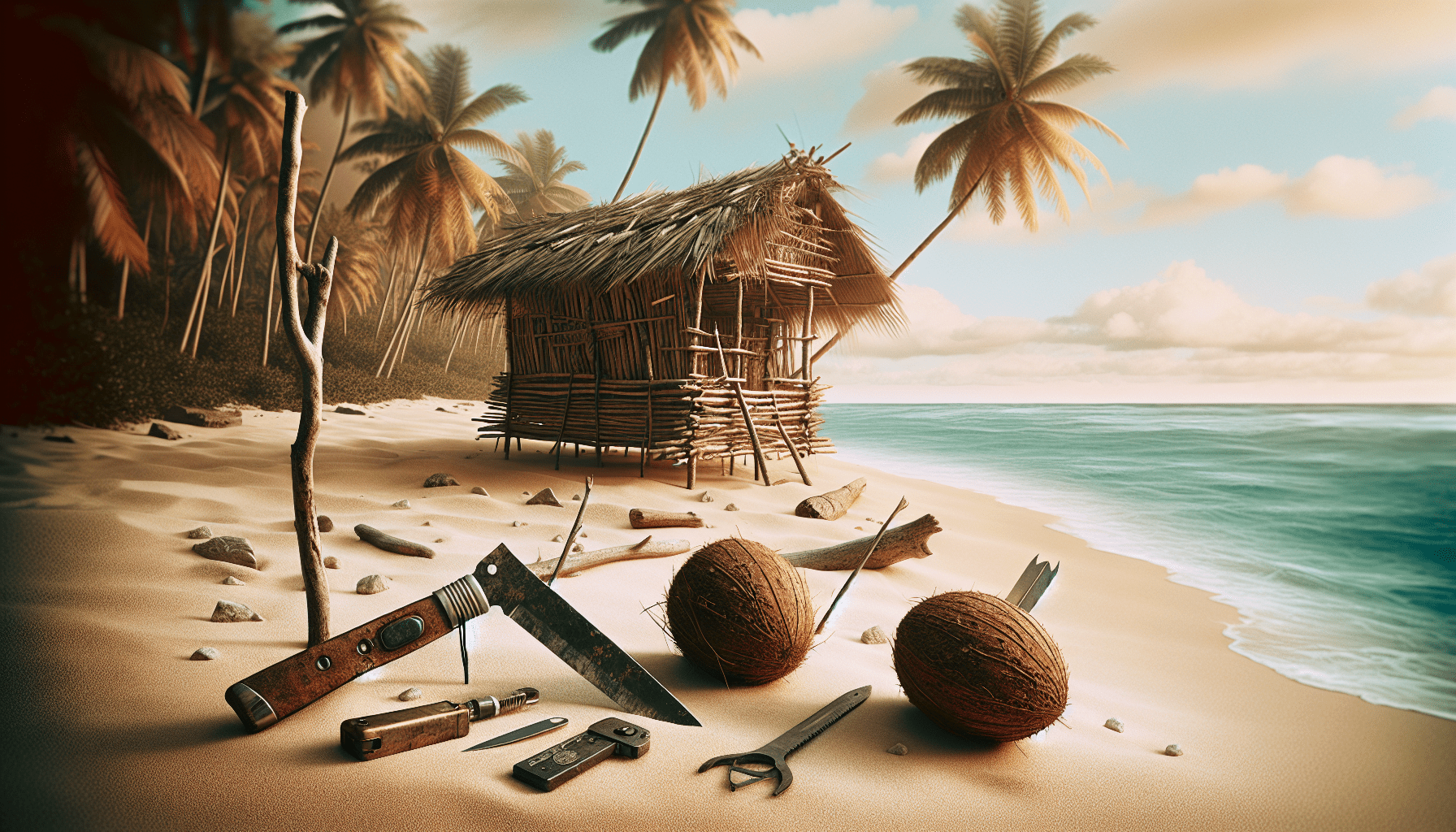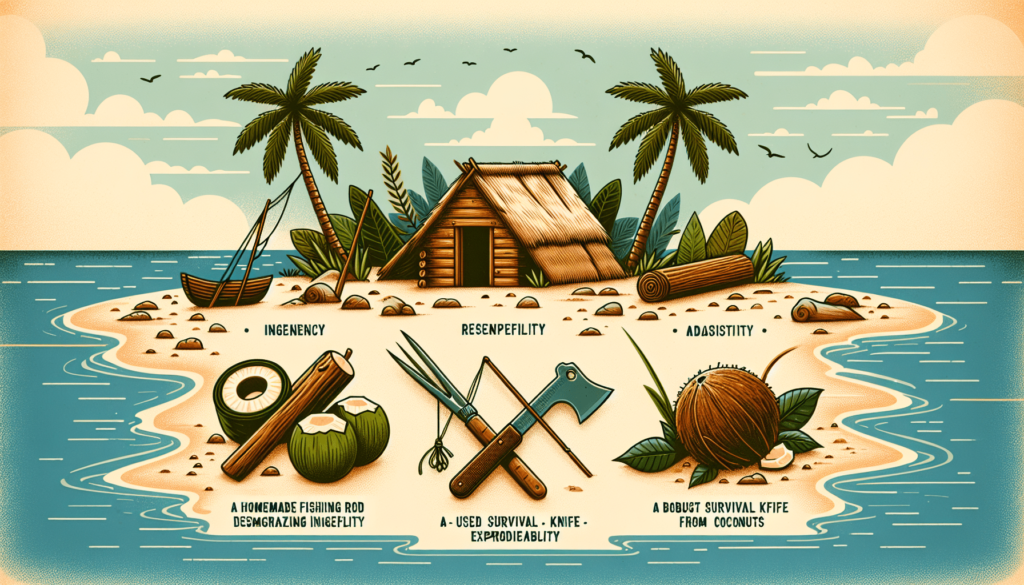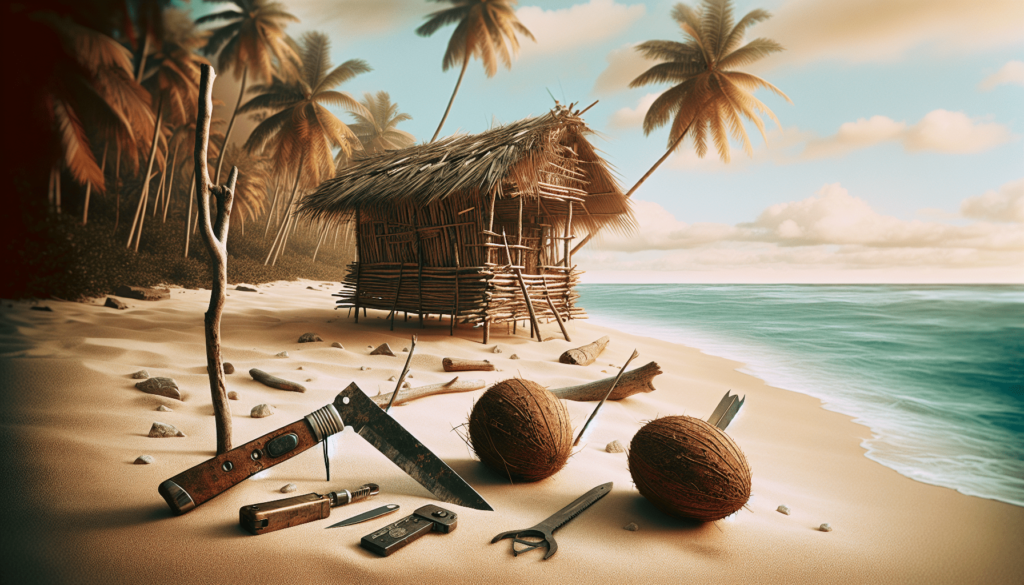
How do you make it on an island? Have you ever wondered what it takes to survive in such an isolated environment? Whether it’s a fantasy of escaping everyday life, or a genuine question sparked by a fascination with remote living, we’ve got you covered. Living on an island comes with its unique set of challenges and rewards. So, let’s chat about what it truly takes to thrive when you’re surrounded by water.

Understanding Island Living
The Allure of Island Life
First, let’s talk about what pulls us towards island living in the first place. The lure of sandy beaches, the melody of crashing waves, and the promise of a simpler, slower pace of life can be incredibly appealing. Like a siren’s call, it’s this idyllic image that can make us dream of packing our bags and heading for the nearest shore.
Reality Check: The Isolation Factor
But, reality often has a way of bringing us back to earth. Isolation can be quite the test. The idea of solitude may sound poetic, yet being cut off from the mainland also means limited resources and amenities. A quick trip to the grocery store turns into a boat or plane ride, and medical emergencies become much more complicated. It’s essential to weigh these factors before taking the plunge.
Essential Preparations
Supplies and Provisioning
Before setting sail for island life, the golden rule is to stock up. Picture it: no corner store for miles. You’d need to plan for everything—food, water, medical supplies, toiletries, and more. Think about how often you might find yourself without something essential, and multiply that tenfold.
| Essential Supplies | Why You Need Them |
|---|---|
| Non-perishable food | Durability and longevity |
| Freshwater supply | Drinking and hygiene |
| Medical kit | Preparation for any emergency |
| Toiletries | Daily hygiene |
| Backup power source | For electricity outages |
| Tools and repair kits | Fixing things on the go |
| Communication devices | Staying in touch with the mainland |
Build a Stockpile
Building a stockpile isn’t about hoarding; it’s about smart planning. Packaged foods like rice, pasta, canned goods, and dried fruits can be lifesavers. Freshwater—it’s non-negotiable. Either you stock up on bottled water or invest in filtration systems if there’s a freshwater source on the island.
Medical Emergencies
A well-equipped medical kit is another essential. Aspirin, antiseptics, bandages, and any prescription medications should make the list. You’re your own first responder until help arrives. It’s not just about cuts and scrapes; think beyond to scenarios like allergic reactions or more severe health crises.
Shelter and Housing
Finding or Building Shelter
You’ll need to figure out your living arrangements. Some islands may have existing structures you can use or refurbish. If you’re building from scratch, you’ll need durable materials that can withstand salty air, strong winds, and, yes, the occasional hurricane.
The Importance of Weather Resistance
Materials like concrete, treated wood, and weather-resistant metals can make a world of difference. You’ll want something that won’t rot away at the first sign of moisture or crumble under the intense sun. Don’t underestimate the power of proper insulation and ventilation, either; the tropical sun can turn your abode into an oven if you’re not careful.
Sustainable Living
If you’re thinking long-term, sustainability becomes key. Solar panels, rainwater collection systems, and composting toilets become more than eco-friendly options—they become necessities. Not just for the environment, but for your own survival. Trust us, relying on the mainland for consistent supplies is a risky gamble.
Food Sourcing
Fishing: A Game Changer
Let’s be honest, the luxury of island living would fade pretty quickly if we subsisted on canned beans alone. Fishing can play a huge role in our diet. Most islands have a bounty of fish, and learning to catch them can be a game-changer. Invest in quality fishing gear and, if possible, take a crash course in the basics.
Gardening and Foraging
It’s not all about the ocean; the land can provide plenty too. Setting up a garden might seem daunting, but growing vegetables and herbs can drastically improve our quality of life. Foraging for wild fruits and nuts, if the island provides them, can also supplement our diet. The trick is to plant crops suited to the climate and soil conditions.
Upkeep and Preservation
With fresh food comes the necessity of preserving it. Methods like drying, smoking, or pickling can help make your harvest last longer and diversify your meals. Electrical options like a freezer might be limited due to energy constraints, making traditional preservation techniques invaluable.

Water: The Lifeline
Freshwater Sources
Water is, without a doubt, the most critical aspect of island living. If the island has freshwater sources—a stream, a spring, or even a well—consider yourself lucky. However, many islands might not have readily available freshwater, making planning all the more vital.
Rainwater Collection
No freshwater source? No problem. Rainwater harvesting is an indispensable skill. With the right setup—gutters, tanks, and proper filtration systems—you can collect and purify rainwater for consumption. Having a basic understanding of how to maintain and clean these systems ensures a steady water supply.
Desalination: When Rain Fails
In extreme cases, desalination can become necessary. While small-scale desalination kits exist, they’re often energy-intensive. Those opting for long-term island life might consider investing in more efficient systems. They’re costly but invaluable in turning seawater into drinkable water when all else falls short.
Energy Solutions
Solar Power
Electricity can be a luxury on a remote island. Solar power can become your best friend. Photovoltaic panels can capture that abundant sunshine and convert it into usable electricity. It’s clean, renewable, and given that most islands receive plenty of sunlight, it’s generally reliable.
Wind Energy
Don’t overlook the possibility of wind energy. Islands tend to have windy environments, perfect for small wind turbines which can complement your solar panels. Combining both solar and wind systems ensures a more consistent energy supply, reducing the likelihood of power outages.
Backup Options
Despite the best preparations, the weather might foil our energy plans. Having backup sources like a generator, or even just extra batteries, gives us that additional layer of security. The redundancy might feel excessive, but it’s always better to be over-prepared than under.
Communication and Connectivity
Keeping in Touch
One of the most underestimated challenges of island living is staying connected with the rest of the world. Satellite phones and internet can bridge that gap. While these aren’t cheap, they can be life-saving for emergencies or simply maintaining your sanity through regular communication with loved ones.
Emergency Contacts
Maintaining a list of emergency contacts is non-negotiable. Both local authorities and personal connections should be easily reachable. Equip yourself with reliable communication devices and understand the protocols for seeking help in dire situations. Knowing who to call can turn a potential disaster into a manageable situation.
Mental and Emotional Well-being
Combatting Isolation
Isolation isn’t just a logistical challenge; it also has a significant emotional impact. The romantic notion of island solitude loses its shine when you’re truly alone. Finding ways to stay socially connected, even if digitally, and engaging in fulfilling activities can help mitigate feelings of loneliness.
Routine and Structure
Maintaining a routine can provide a sense of normalcy. Daily chores, exercise, hobbies, and even scheduled ‘rest’ can keep our minds engaged and reduce stress. It’s crucial to strike a balance between work and relaxation to ensure that life remains enjoyable, not just bearable.
Mindfulness and Mental Health
Don’t shy away from mindfulness practices, whether that’s meditation, journaling, or simply mindful walks. Mental resilience is a muscle that needs regular exercise. Taking proactive steps to maintain our mental health is as essential as ensuring we have enough to eat or drink.
The Unexpected
Prepare for Natural Disasters
Mother Nature loves a surprise party. Earthquakes, tsunamis, tropical storms, and even volcanic eruptions could be on the guest list. Knowing the risks specific to our island is the first step.
Emergency Kits and Plans
Crafting an emergency plan is pivotal. Know the evacuation routes, have emergency kits prepped, and ensure communication lines are clear. Practice drills, even if it feels a bit extreme, because muscle memory can be a life-saver when panic sets in.
Emergency Kit Essentials
| Item | Purpose |
|---|---|
| First-aid supplies | Basic medical aid |
| Flashlights & batteries | Light during power outages |
| Non-perishable food | Sustenance during crises |
| Water purification tablets | Ensuring clean drinking water |
| Multipurpose tool | Various emergency uses |
| Extra clothing | Warmth and protection |
| Radio | Receiving updates and alerts |
Financial Preparations
Financial security is another aspect often overlooked until it’s too late. Having a stash of emergency funds, either in local currency or easily accessible digital options, can be crucial. You never know when you’ll need to make an unplanned purchase or fund quick travel.
Social Networks and Community Engagement
Building a social network on the island can also be invaluable. Human beings are social creatures; we thrive on interactions and community. Investing time in fostering relationships with fellow islanders can not only make life more enjoyable but also provide a reliable support system during tough times.
Adaptability and Learning
Learning New Skills
Adaptability is the name of the game when living on an island. The more skills we acquire, the easier our life will become. From basic carpentry and repair work to fishing and gardening, even cooking with limited resources—all these abilities contribute to a more self-sufficient, resilient lifestyle.
Continuous Learning
It doesn’t stop with just the basics. Learning should be a continuous process. Considering online courses or DIY tutorials can significantly expand our skill sets. The more self-reliant we become, the more we can enjoy the idyllic aspects of island life without feeling perpetually unprepared.
Enjoying Island Life
Embracing Nature
Let’s not forget why we considered this crazy idea in the first place. Living on an island gives us unparalleled access to natural beauty. Embrace it. Snorkeling, hiking, stargazing, or just lounging on the beach—these activities nourish our souls. Make the most of the unique environment.
Cultural Integration
Engaging with local culture enriches the island experience. Learn local customs, participate in traditional events, and embrace the community’s way of life. This not only fosters respect and understanding but also creates a deeper connection with the place we now call home.
Capturing Memories
Finally, don’t forget to document your journey. Whether through photography, journaling, or even blogging, capturing our day-to-day life provides a sense of fulfillment, a way to look back on our unique adventures, and perhaps even inspire others thinking about taking a similar plunge.
Living on an island isn’t for everyone. It requires meticulous planning, a myriad of skills, and most importantly, the right mindset. But, for those of us who are committed, it can be one of the most rewarding experiences imaginable. As we prepare ourselves for the challenges and embrace the rewards, we find a life enriched by its simplicity, beauty, and self-sufficiency.
